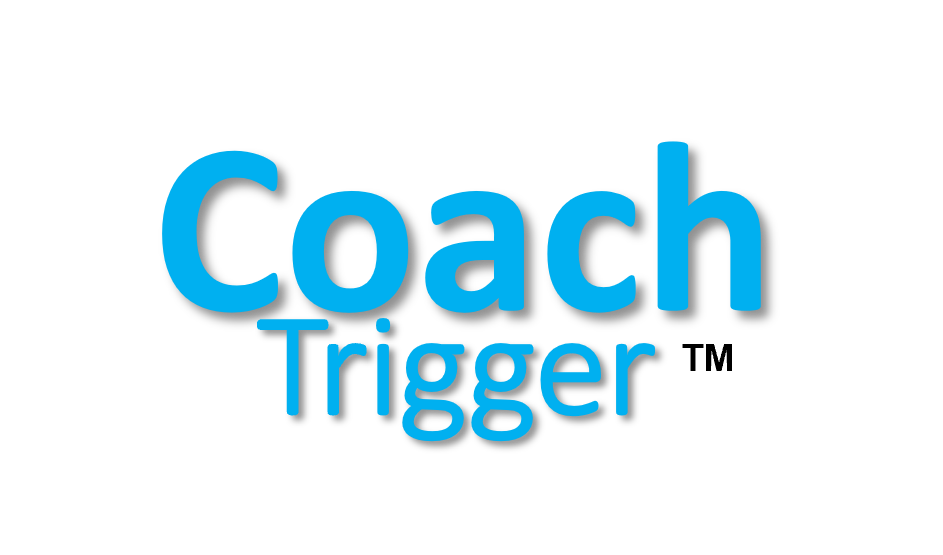| Metrics and KPIs | Description |
|---|---|
| Client Goal Progress | Measures the progress clients have made towards achieving their goals. This metric helps coaches assess the effectiveness of their coaching strategies and make necessary adjustments. |
| Client Satisfaction | Measures clients’ satisfaction with the coaching process and the outcome of their coaching sessions. This metric reflects the overall coaching experience and can provide insights into areas for improvement. |
| Client Feedback | Collects feedback from clients on their coaching experience, allowing coaches to gain valuable insights and identify areas of strength and improvement. |
| Coaching Session Attendance | Tracks clients’ attendance and participation in coaching sessions. This metric helps coaches assess client engagement and commitment to the coaching process. |
Coaching is a journey of growth and transformation. As a coach, you are dedicated to helping individuals unlock their full potential, achieve their goals, and find fulfillment in their personal and professional lives. You understand the power of guidance, support, and accountability in facilitating positive change. But to truly make a meaningful impact, you need the right tools by your side.
Whether you are a seasoned coach looking to enhance your approach or a new coach just starting your journey, this comprehensive guide will provide you with valuable insights and recommendations to discover the right coaching tools that align with your coaching style and client needs.
Key Takeaways:
- Choose coaching tools that align with your coaching style, client needs, and coaching objectives.
- Utilize goal setting tools to help clients set clear, achievable, and time-bound goals.
- Enhance your communication skills with video conferencing platforms and communication platforms.
- Leverage data tracking tools to measure coaching effectiveness and make data-driven decisions.
- Explore custom coaching apps to personalize coaching experiences and provide targeted guidance.
Embracing Technology with Digital Coaching Platforms

In today’s digital age, technology plays a crucial role in coaching practices. Coaches are increasingly turning to digital coaching platforms to streamline their coaching management processes and enhance their services.
Streamlining Coaching Management with LMS
One important aspect of coaching management is the ability to effectively organize and administer coaching sessions, client information, and training materials. Learning Management Systems (LMS) provide coaches with the tools they need to deliver online courses, webinars, and training materials to their clients.
Engagement and Progress Tracking Via Mobile Apps
Coaches can also leverage mobile apps to engage with their clients and track their progress in real-time. These apps offer convenient tools for goal tracking, habit-building, and personalized coaching exercises.
Personalizing Coaching
Personalization is a key aspect of effective coaching. With the help of custom coaching apps, coaches can create personalized coaching experiences for their clients. These apps allow coaches to develop coaching exercises, assessments, and interactive tools tailored to the specific needs of each client.
These apps can include features like progress tracking, goal setting, and communication tools, which facilitate ongoing engagement and support throughout the coaching journey.
The ability to personalize coaching through these digital tools ensures that coaches can address the unique challenges and goals of each client. Coaches can customize exercises and assessments based on the client’s preferences, learning style, and desired outcomes. This tailored approach fosters a deeper connection between the coach and client, leading to more impactful coaching results.
Custom coaching apps also offer the convenience of anytime, anywhere access. Clients can engage with coaching exercises and resources at their own pace and schedule, providing flexibility and convenience. This accessibility allows clients to fully immerse themselves in the coaching process, maximizing their learning and growth potential.
Coaching Tools for Enhanced Communication Skills
One-on-one interaction through video conferencing platforms allows coaches to have face-to-face conversations with their clients, regardless of their physical location. This method adds a personal touch to coaching sessions and fosters stronger rapport between coaches and clients.
Through video conferencing, coaches can observe facial expressions, body language, and other non-verbal cues that are crucial for understanding their clients’ needs and emotions.
Forming Stronger Bonds Through Communication Platforms
In addition to video conferencing, coaches can leverage communication platforms such as messaging apps or online collaboration tools to facilitate ongoing communication and support between coaching sessions. These platforms enable prompt feedback, the exchange of resources, and continuous engagement between coaches and clients, ensuring that clients feel supported and motivated throughout their coaching journey. Coaches can share resources, provide guidance, and address any questions or concerns easily and efficiently.
Leveraging KPIs and Metrics

Real-time Data Tracking for Informed Decisions
Real-time data tracking tools provide coaches with immediate feedback on client progress, allowing for timely interventions and adjustments to coaching approaches. By utilizing real-time data tracking, coaches can stay updated on their clients’ progress and proactively address any challenges or obstacles they may encounter. Whether it’s monitoring a client’s performance towards their goals or measuring the effectiveness of specific coaching techniques, data tracking provides valuable insight that can inform decision-making and drive positive coaching outcomes. Coaches can use this data to identify patterns, assess client engagement, and adjust coaching strategies as needed. Let’s take a look at some key metrics and KPIs that coaches commonly track to monitor coaching effectiveness:Coaching Techniques: From Theory to Practice

Coaching techniques form the foundation of effective coaching. As a coach, you have various coaching techniques at your disposal to help your clients achieve their goals and foster personal growth. These techniques include:
- Active Listening: Skillfully listening and understanding your clients’ needs, challenges, and aspirations.
- Powerful Questioning: Asking thought-provoking questions to stimulate critical thinking, reflection, and self-discovery.
- Visualization Exercises: Guiding clients through visualizations and mental imagery to enhance their focus, motivation, and goal attainment.
- Goal Setting Frameworks: Utilizing proven frameworks like SMART (Specific, Measurable, Achievable, Relevant, Time-bound) to help clients set clear and achievable goals.
- Accountability Strategies: Implementing methods to hold clients accountable for their actions, progress, and commitment to their goals.
Skills development will enhance your ability to support your clients and achieve successful outcomes in your coaching practice.
Coaching Effectiveness with Assessment Tools
By utilizing pre and post-assessment strategies, coaches can measure client progress and evaluate the effectiveness of their coaching approaches. By analyzing the data collected from pre and post-assessments, coaches can measure the impact of their coaching interventions and identify the areas in which their clients have experienced growth and development.
Different Assessment Tools for Coaching Effectiveness
| Assessment Tool | Purpose | Method |
|---|---|---|
| Surveys | Gather feedback on coaching experience and client satisfaction | Online or paper-based surveys with structured questions |
| Questionnaires | Collect data on specific coaching outcomes and areas of improvement | Structured questionnaires with Likert scale or open-ended questions |
| Feedback sessions | Engage in direct conversations to gain insights and suggestions for improvement | One-on-one or group feedback sessions with clients |
| Structured assessments | Evaluate specific coaching competencies or skills | Standardized assessment tools or rubrics |
Setting Goals with Innovative Goal-Setting Tools
Goal setting is a fundamental aspect of coaching, and innovative goal-setting tools can greatly assist coaches in guiding their clients through the process of setting and achieving their goals.
These tools incorporate the SMART (Specific, Measurable, Achievable, Relevant, Time-bound) framework, which ensures that goals are well-defined and attainable.
Coaches can utilize various goal-setting tools to support their clients in mapping out their goals and creating actionable execution plans. Some of these tools include:
- Goal-planning templates: These templates provide a structured format for clients to define their goals, outline the necessary steps, and set deadlines.
- Progress trackers: By using progress trackers, clients can monitor their progress towards their goals, celebrate milestones, and make necessary adjustments along the way.
- Visualization exercises: Visualization exercises help clients visualize their desired outcomes and establish a strong connection between their goals and their personal motivation.
These tools provide structure and accountability, enabling clients to stay focused and motivated while working towards their goals.
Fostering Team Development with CoachTrigger

Team development is a critical aspect of coaching, especially in the context of organizational coaching.
Coaches play a vital role in helping teams collaborate effectively, communicate efficiently, and achieve their goals collectively. To facilitate team development, coaches can utilize the powerful coaching platform, CoachTrigger.
Building a Culture of Collaboration
Collaboration is the cornerstone of successful teams. CoachTrigger provides coaches with a range of collaboration tools that enable teams to work together seamlessly. With features like shared workspaces, task management, and document sharing, CoachTrigger fosters a culture of collaboration and promotes cross-functional teamwork.
These tools facilitate real-time communication, idea exchange, and collective decision-making, ensuring that team members are aligned and working towards a common goal.
Finding the Right Solution for Coaches
CoachTrigger is not only a coaching platform for team development but also a thriving coaching community.
Coaches can connect with fellow professionals, share insights, and find support and resources to enhance their coaching practices. The CoachTrigger coaching community serves as a valuable hub for coaches to learn, grow, and expand their network.
By being part of this vibrant community, coaches can access the collective wisdom of experienced professionals and stay updated on the latest trends and techniques in coaching.
Conclusion
When choosing these tools, it’s essential to consider your coaching style, the specific needs of your clients, and your coaching objectives.
Moreover, coaches need to stay updated with new tools and technologies that can improve their coaching sessions. Embracing innovative tools allows you to adapt to the changing coaching landscape and offer enhanced services to your clients.
Finally, platforms like CoachTrigger can have a significant impact on your coaching business. It provides a comprehensive solution for learning, training, and coaching. Moreover, explores new revenue streams, scalability, innovation in learning, and more successful implementation.
Select the right coaching tools and harness their potential, elevate your coaching game, and empower your clients to achieve their goals in their journeys.
Featured Blogs






